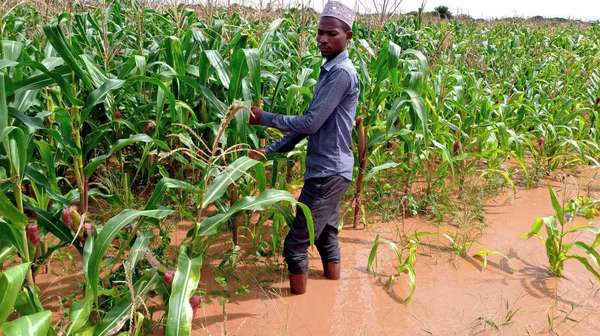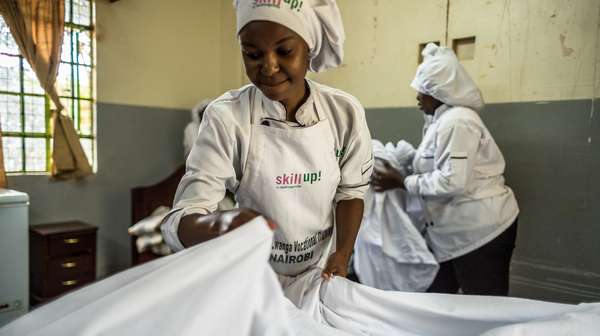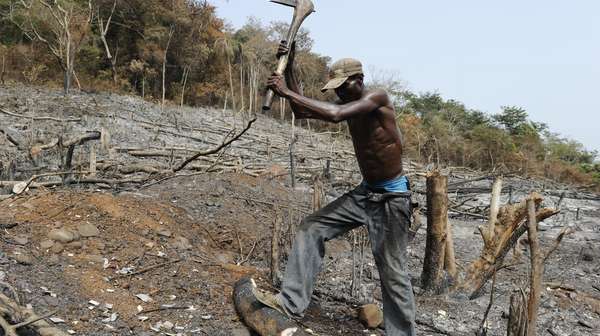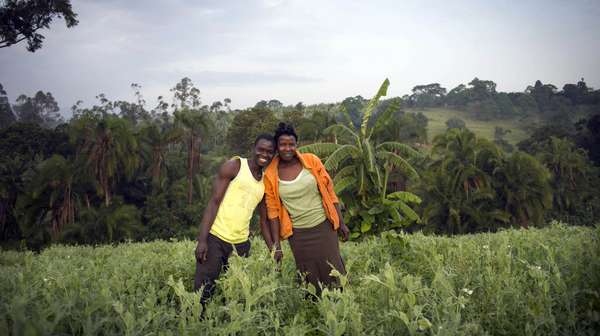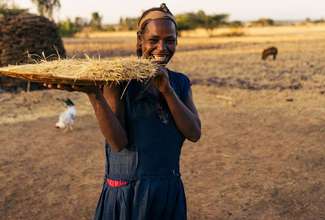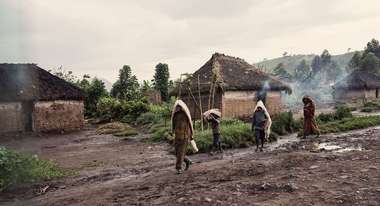After devastating floods, people urgently need support.
2023 Review: Achievements and Challenges in Times of Crisis
In 2023, we will remember many crises and disasters. But there were also positive developments we could achieve together with the people we work with. Welthungerhilfe (WHH) General Secretary Mathias Mogge reports.
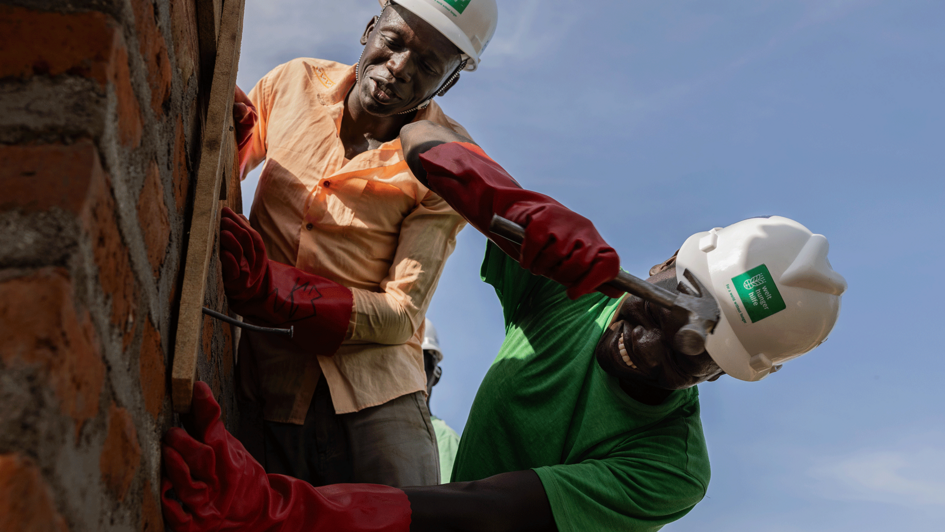
2023 has been a poor year for many people. The images of the devastating earthquake in Türkiye and Syria at the beginning of the year are certainly still fresh in our minds. There were also severe floods in East Africa and Libya and major earthquakes in Morocco, Afghanistan, and Nepal.
And those were just the natural disasters. We have also seen prolonged armed conflicts, particularly in the Sahel, Ethiopia, Sudan and, most recently, of course, in Israel and Gaza. All of this is almost unbearable for the people affected, leading to more and more hunger in these regions.
More than 735 million people remain hungry. Hunger is also directly linked to the effects of climate change, such as the severe drought in East Africa, and the later floods. Similar droughts have hit many countries, including southern Madagascar and Afghanistan.
We hardly work in a country that has not experienced some kind of crisis this year. WHH has responded with acute emergency aid, a smooth transition to long-term cooperation, and a focus on new, innovative strategies and instruments.
Positive developments in 2023
It's difficult to look forward to the new year confidently in the face of all the crises. What gives me confidence is looking at the successes of our work. Together with our partner organizations and the people we work with, we have seen many positive developments this year.
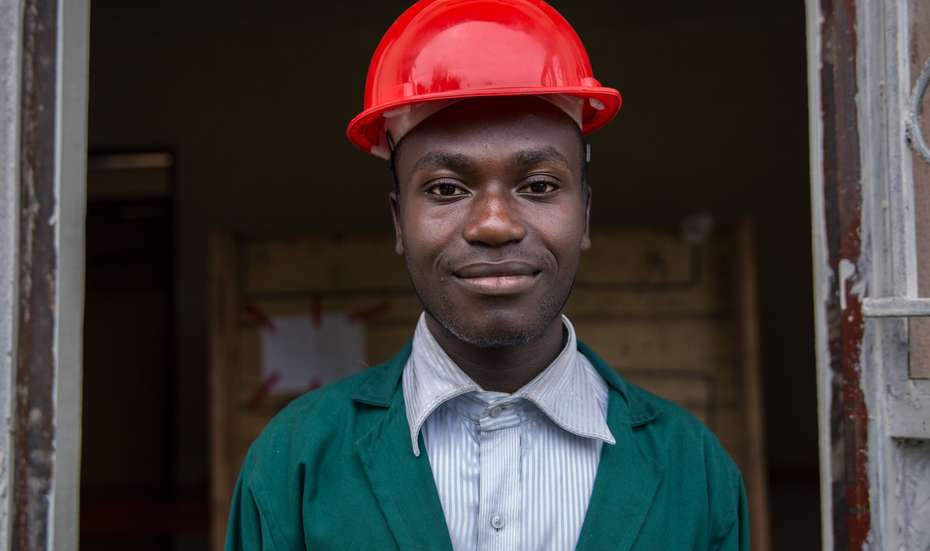
For example, we have expanded the Skill up! program to other countries, including Burundi, Mali and the Central African Republic. The program provides training to disadvantaged young people. This does not always include full vocational training, but also education courses. We design it to enable young people to enter the job market and eventually earn a living.
Job opportunities and a better life for trainees, trainers and their families.
Together with our partners, we have trained some 25,000 people over the past five years, 70% of whom are now employed. This success is why we continue to expand Skill Up!.
In the Nutrition Smart CommUNITY program, we work with partner organizations and communities to analyze the root causes of hunger. We started this program in India and have since expanded it to Nepal, Bangladesh and several African countries, including Ethiopia, Malawi, Sierra Leone and Burundi. We start at the village level: What is the problem preventing people from securing their access to food? It could be that women do not have access to land. It could be a need for more seeds or water for people and animals or irrigation. It could also be a lack of knowledge, such as how to detect malnutrition at an early stage.
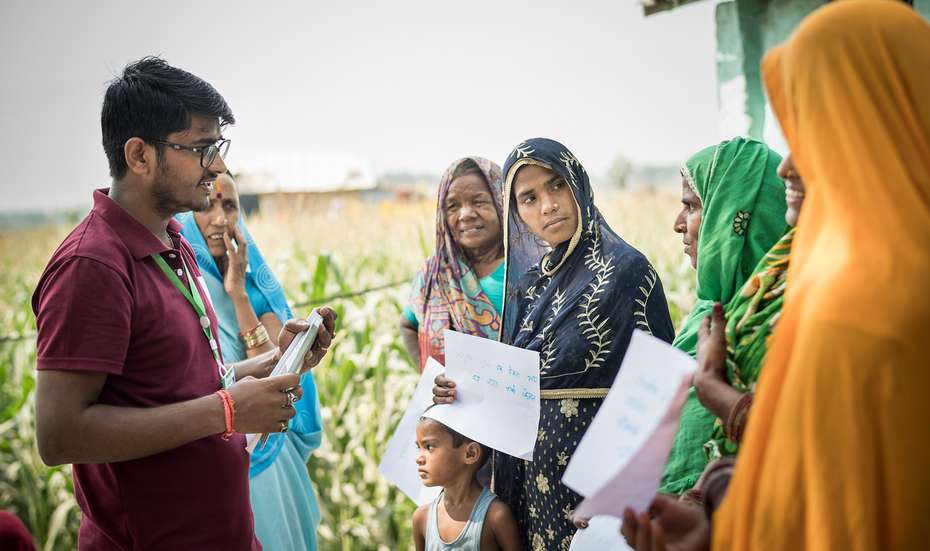
The solution is local
At the end of a long planning process, there is a clear goal: No one should go hungry here. One of the recipes for the success of Nutrition Smart Communities is to find solutions and approaches together with local people without ignoring other levels in the country.
Government policies make a big difference, for example, in rural development, nutrition or agriculture. Policy is also an essential area of work for WHH: together with local partner organizations, we work to change policies so that they consider the problems of poor and disadvantaged people and address inequalities and injustices.

At the end of a long planning process, there is a clear goal: No one should go hungry here.
Mathias Mogge General Secretary of WHH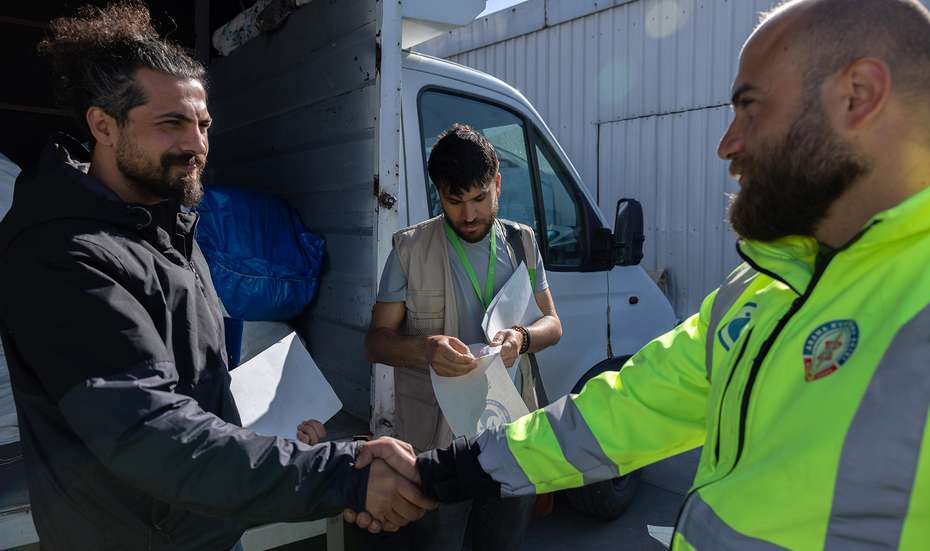
We need more cooperation to overcome the crises of our time
We are deeply concerned about the tense global situation, with an increasing polarization of the world, with a growing number of wars, violence, and an ever-increasing number of autocratically governed states. We need more, not less, international cooperation if we are to meet the vast challenges of the climate crisis, environmental degradation, loss of biodiversity and the fight against hunger. Unfortunately, what we see in the UN General Assembly, the Security Council, and other international forums is often the opposite.
The effects of climate change are a central cause of hunger, malnutrition, and poverty.
Politicians and civil society must always seek dialogue, build trust, and identify and avoid conflict early on. I was at the COP28 climate conference in Dubai in December – there was an arduous struggle for agreement and a related joint statement. In the end, a compromise emerged, which may not be ideal, but at least for the first time, there is a commitment to completely end fossil fuel use in the future.
For the first time, 159 countries signed a joint declaration on the importance of sustainable agriculture, resilient food systems and climate action. This declaration gives hope that governments will recognize the clear link between hunger and climate change.
Growing challenges for development cooperation
The growing number of autocratic regimes is a significant challenge for development cooperation in the field. Many of these governments tend to restrict the work of non-governmental organizations such as WHH.
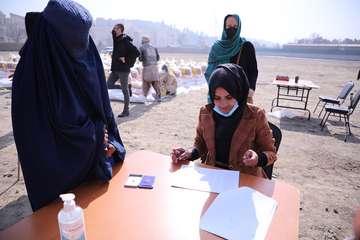
In countries like Sudan or Afghanistan, getting money into the country is complex. Remittances are difficult, and women are not officially allowed to work. These restrictions don't make our work any more straightforward.
Another issue is the safety of our colleagues and our partner organizations. We work in regions such as the Sahel and Sudan, where there are repeated attacks on civilians. Over the past few years, we have refined our security concepts to make reaching people in these areas easier. We try to stay on the side of the people, even in insecure areas, for example, when the Taliban took over in Afghanistan. We stayed there and continued to try to help the people who were suffering from hunger, living in great poverty and struggling to survive.
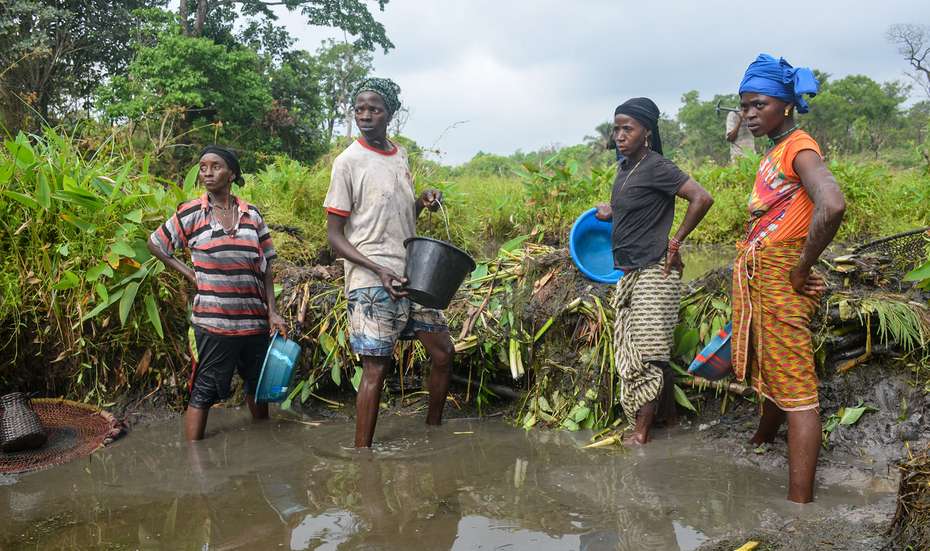
We want to get better
At WHH, we constantly strive to improve and make our work with people worldwide more effective. That is why we are in the process of reviewing our current strategy. We are asking ourselves: what is becoming more important, what is becoming less important? Take climate change, for example. How will we position ourselves in the future, and what does progressive climate change mean for our practical work in agriculture and resource management? How can we better integrate the needs and ideas of local people? These are the questions we are working on with our 3,500 global employees.
By measuring the impact of our programs, we can critically evaluate successes and failures – and learn from them.
We also want to improve how we monitor the impact of our projects. We are implementing new survey software that will allow us to better incorporate feedback from people in communities when planning programs and evaluating the impact of our work. We want to help eliminate hunger and ensure people are more resilient to tomorrow's crises.
We are expanding the WHH Anticipatory Humanitarian Action Initiative to other countries to build this resilience. We are working with research institutions in the project countries to develop models for predicting disasters such as droughts, floods and other extreme weather events. These models will enable us as an aid organization and the countries themselves to react early to mitigate the consequences of a disaster. The idea is to help people prepare for disasters at an early stage rather than just reacting to them when they occur.

We want to help eliminate hunger and ensure people are more resilient to tomorrow's crises.
Mathias Mogge General Secretary of WHHOutlook: What will be most important in the coming year?
If we look at current developments, 2024 will also be a challenging year for development cooperation. We are facing cuts in government development budgets in Germany and many other countries. These cuts are wrong, and we hope the government will reverse them in the 2025 budget.
Looking to the future, we, as development actors, need to be better at measuring the impact of our work to show what we have achieved. After all, our work contributes to food security on the ground, reducing hunger, and stabilizing societies, some of which are at risk of violent conflict. Our goal must always be to contribute to peace.
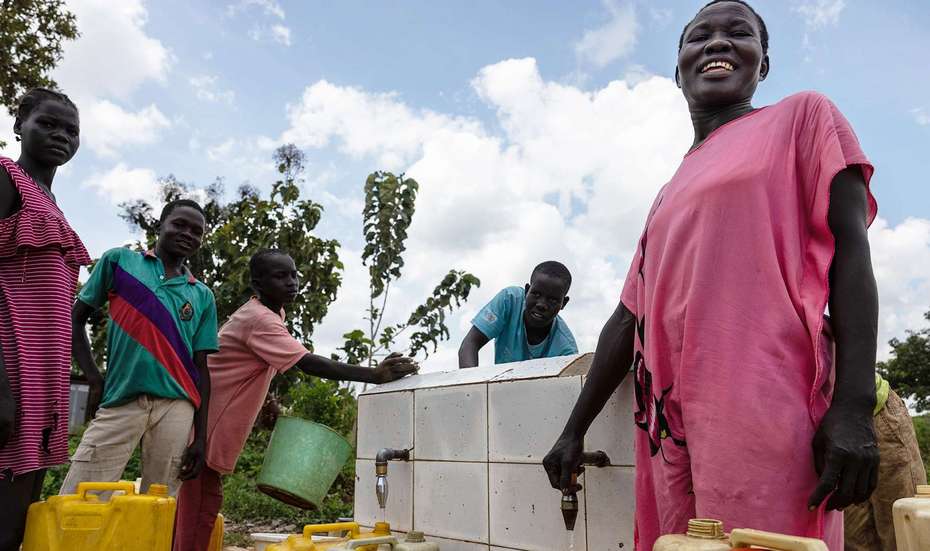
There are good examples of this. In the border region between Kenya and Uganda, for example, the scarcity of resources has led to repeated attacks and violent clashes between groups of cattle herders. WHH is helping to stabilize the situation by trying to improve the quality of grazing land and drinking water for livestock and by bringing these groups together in dialogue. In this way, we have repeatedly succeeded in creating understanding and avoiding major conflicts.
Finally, on behalf of WHH, I would like to thank all donors, supporters and institutional sponsors for their support. It was only with your help that we were able to help 18.8 million people around the world in one year. In times of increasing crises, our joint commitment is especially important. It gives us confidence that positive change is possible – but only if we work together.





